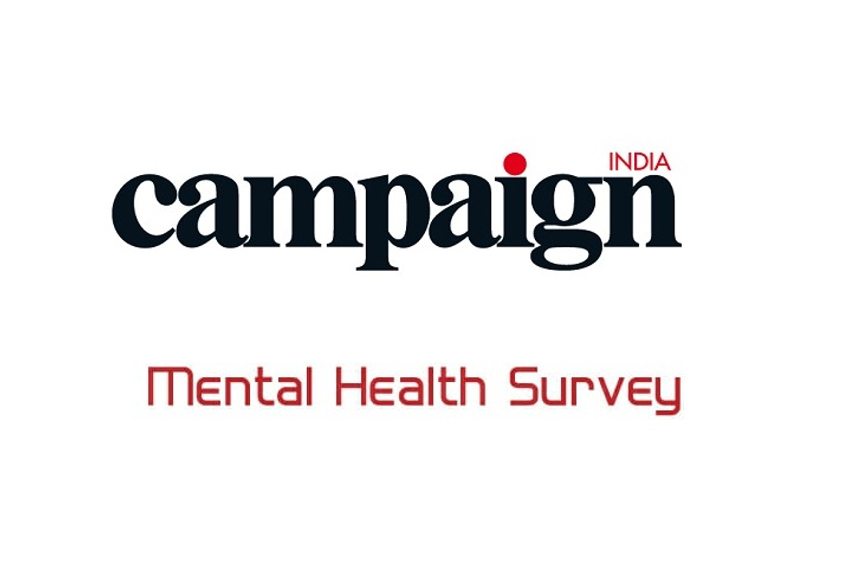Recently, Campaign India introduced its Mental Health Survey, taken by close to 200 respondents in 15 days. The survey revealed insights that offer a glimpse into the mental health of professionals in the advertising, media, PR and marketing industries.
2020 was an extraordinary year. Thanks to the Covid-19 pandemic, people were forced to distance themselves physically from loved ones and were unable to step out for any activities that brought them joy – watching movies in a cinema hall, stepping out to their favourite restaurants, and going on vacations, to name a few. Most importantly, however, working professionals had to adapt to a life of working from home, almost overnight. This new arrangement had several positives but has also contributed towards blurring lines between personal and professional lives.
Survey findings
To help employees deal with the stress of the new way of living, spurred on by the pandemic, several organisations have been introducing ways to boost employee morale, whether it’s through virtual offsites, weekly parties online, and fitness classes, to name a few.
However, Campaign India’s survey aims to find out the steps organisations are taking to reduce the root cause of work-place stress – the work and everything that comes along with it: streamlining of processes, deadlines, burnouts, pitches, empathy, fixed login and logout timings (or the lack thereof), for instance. While these challenges aren’t new to the industry, there seems to be no better time to address the effects they are having on employees’ mental and physical health.
The highest number of respondents of the survey – 38 per cent – were from advertising agencies, followed closely by PR agencies at 27 per cent. 41 per cent of respondents were aged 31-40, followed by individuals from the 26-30 age group at 23 per cent. Their years of experience is represented below:
While 69 per cent of professionals reveal that their organisations have not provided access to any mental health or therapist services, the bigger question seems to be this: are companies, by providing access to mental health practitioners, placing the onus of dealing with stress on employees themselves?
Further, despite the growing awareness around mental health and the accompanying conversations, the survey shows that a large number of the workforce is uncomfortable asking for leave to deal with work stress and tend to their mental health.
This is worrying, also because a startling 71 per cent of respondents feel that their organisations haven’t taken any concrete steps towards actively reducing workplace stress. Employees claim they haven’t been receiving considerate timelines and are even unable to sign off for the day post 6 or 7 PM. Additionally, they are dealing with the pressures of having to come to the office and are expected to be available over weekends.
Overall, respondents have identified several reasons that contribute to their workplace-induced stress and anxiety, like long working hours, the expectation to be available at all times, and the lack of control over timelines, to name a few.
In the subjective answers, respondents have outlined several expectations for organisations to help them maintain more work-life balance. The most common inputs are for companies to:
1) Hire more people to mitigate the problem of overworked employees
2) Stop scheduling calls, reviews and any non-essential work post 6 PM, and to refrain from messaging on WhatsApp at odd hours of the night
3) Set client expectations straight in terms of deadlines, especially the last-minute ones
4) Treat weekends as sacrosanct
5) Reduce the number of pitches the company chooses to participate in
6) Encourage more fun activities with colleagues
7) Stop chasing new business when regular work is already hectic
8) Reduce the number of calls and meetings, or have windows strictly for meetings so that tasks can be completed within the workday
9) Job security
10) An extra day off each month as compensation for extra work hours put in
To take this conversation further, Campaign India organised a panel discussion with Achint Setia, VP - marketing, Myntra; Surbhi Gupta, chief talent officer, Publicis Groupe South Asia; Jaideep Shergill, founding partner, Pitchfork Partners, and Saransh Mehta, brand strategist, Dentsu Webchutney.
The session, moderated by Mukta Lad, consultant journalist, Campaign India, looks towards the panellists for the way forward on solving the issues mentioned in the survey, how to avoid talent from burning out and eventually leaving the industry, and the way to streamline processes right from the CMO to the junior-most person in the industry food chain, among others.
Stay tuned for the session this week.








